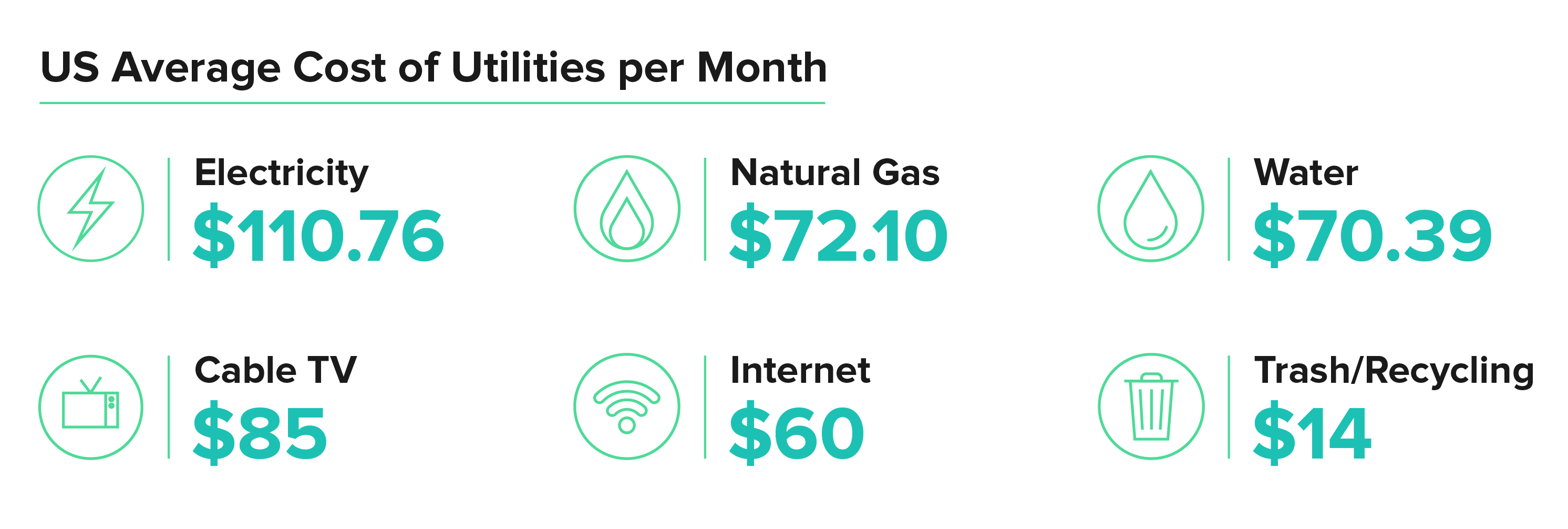Home Maintenance Guide: Utilities
Maintaining your utilities and home infrastructure will increase both comfort and your house’s resale value. Follow these tips.
The hardest part of maintaining your home is remembering to check on the equipment working behind the scenes. You enjoy the cool air of your AC or the hot water in your shower without thinking. So when something goes wrong, it can be devastating to your quality of life.
But things like your house’s HVAC or water heater aren’t always properly maintained. They can create an issue when you’re ready to sell you home. If you list your house with an AC unit on its last legs, buyers may expect you to replace it before they put in an offer. Nobody wants that kind of expense when they’re trying to sell their home, so here are some easy ways to maintain your utilities.
Keeping costs low
Traditionally, utilities encompass three basic items — electricity, natural gas, and water. Other items like cable, internet, and garbage collection are grouped into calculating monthly utility expenses, which average around $398 in the U.S.
The most expensive utility by far is electricity, but gas and water aren’t that far behind. The best way to keep costs low is by being more efficient. Buying energy-efficient pieces of equipment like tankless water heaters and better light bulbs help. So does installing smart devices in your home.
Maintaining the right equipment
Of course, energy-efficient equipment alone aren’t enough. Proper care for your house’s infrastructure is equally necessary. Even if you haven’t upgraded in a while, as long as everything is maintained and operating well, the inner workings of your home will keep you comfortable. Here’s how to maintain the major pieces of utility equipment in your home.
HVAC Systems
Routine maintenance on your HVAC system keeps costs down and reduces the possibility of having to replace or repair equipment. The easiest and most important way to maintain your HVAC system is to remember to change the filters every season. This amounts to a swap every three months. Align the task to the start of each season so it’s easy to remember. You should also visually check all the air vents at least once a month and make sure they’re clear. Don’t block any open vents with furniture, and dust them regularly. If you have rooms in your home that you’re not in often, close the vents. This makes airflow to the areas you are in more efficient.
On the equipment itself, you should clean the compressor coil and evaporator coil once or twice per year. Dirt and mold can appear on these and impact the efficiency of your system. Leaving this detritus to build up makes them harder to clean, so keeping a regular eye on things helps make this easy maintenance. You also want to visually inspect your HVAC systems about once a year. Look for any pooling water, mold growth, or leaks. Your outside unit should get cleared of leaves once a year as well since anything covering up the machinery means it’s not functioning at its best.
Water heater
Keeping your water heater at 120 degrees is the first way to maintain it. Not only does this reduce cost, it also reduces the risk of scalding. This is especially important if you have young children in the home. To maintain the integrity of the water in the tank, drain it by about a quarter a few times per year. This removes any sediment or debris that has built up, and helps your water heater operate quietly. You want to test the temperature-pressure relief valve once a year by discharging it quickly a couple of times. Keep an eye out for any small leaks as you do this. Don’t forget to check the pilot light (if you have one) should any drop in water temperature occur. This is often the issue and a simple relight will take care of things.
Water heaters need replacing about every ten years. If your water heater is getting close to an upgrade, consider going tankless. Not only do they offer a continuous supply of hot water, but you save on the energy cost of having to keep the water in a storage tank, around 40 to 50 gallons, hot.
Electrical panels and circuit breakers
If you think of the equipment that maintains the electricity in your home, there are two parts to consider — the electrical panel and circuit breakers. The breakers are the switches inside the panel. Both require regular maintenance to operate efficiently and safely.
First, make sure that all breakers are properly labeled for the power source they control. You’ll find a place to write this information on the door of your electrical panel or beside the breakers themselves. They should identify either a specific room or appliance. Along with these individual breakers, you’ll have a main circuit breaker that can quickly turn off power to the entire house.
Primary issues revolve around loose connections and exposure to moisture. If your breakers become loose, they’ll fail and you’ll have to replace them. If moisture gets into your panel, it can lead to corrosion and ruin the entire piece of equipment. Because you’re dealing with electricity here, any issues you notice should be dealt with by a professional. Doing it yourself can increase your risk of a dangerous, high-voltage shock.
To prevent individual breakers from “tripping,” or automatically switching off, be careful not to overload them. This means limiting the number of appliances in any group of outlets. When a breaker trips, it moves in between the on and off positions. To fix, switch it completely to the off setting before turning it back on again.
Conducting a quick energy efficiency check
It doesn’t hurt to inspect your home for potential spots where energy is being drained out of the home. Cracks in doors or windows, where hot air escapes in winter, and cool in summer, can impact the price of your electricity bill. Leaks in your plumbing, no matter how small, can waste water and raise that bill as well. Addressing these issues gives you a more efficient home and more affordable utility bills.
Selling your home without worrying about utilities
Keeping equipment running and utilities maintained will make your home a more comfortable place to live in. But upgrading as these items age can get costly. When you go to sell your home, buyers may be put off by having to handle the care or replacement of older equipment. Avoid the issue altogether by working with an off-market buyer to sell your house. They’re able to make an offer regardless of the age or state of your utilities. To learn more, contact Sundae today to learn more about how we can help you get the highest off market price for your home today.
—
Other Articles in this Series:
Ready to Get Started?
Sell as-is. Pay zero fees to Sundae. Move on your time. No repairs, cleanings, or showings.

